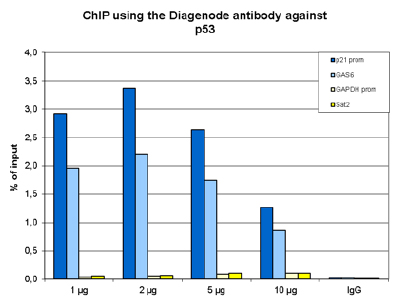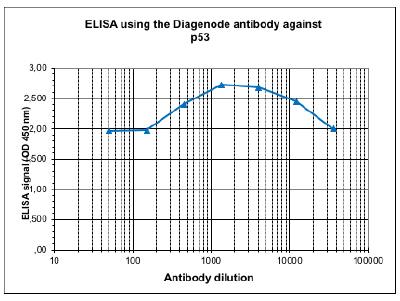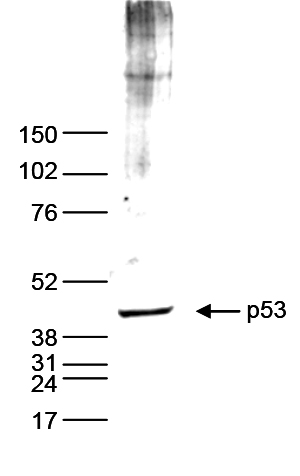The transcription factor p53 (UniProt/Swiss-Prot entry P04637) is a tumour suppressor that regulates the cellular response to diverse cellular stresses. Upon activation, p53 induces several target genes which leads to cell cycle arrest and DNA repair, or alternatively, to apoptosis. In unstressed cells, p53 is kept inactive by the ubiquitin ligase MDM2 which inhibits the activity and promotes the degradation. Mutations in p53 are involved in a vast majority of human cancers.








